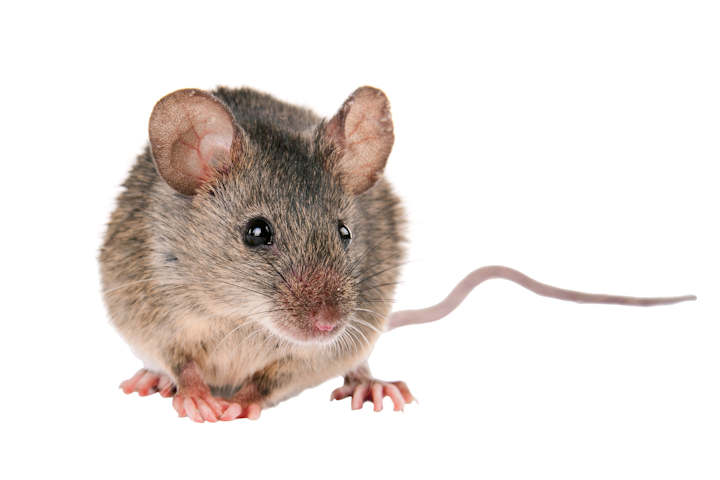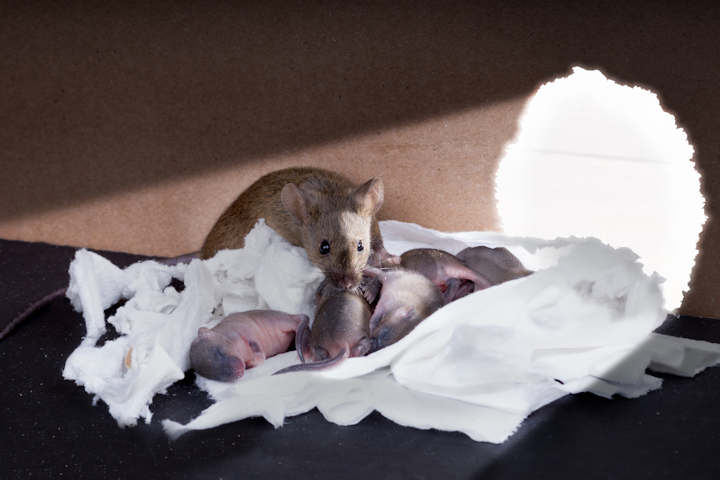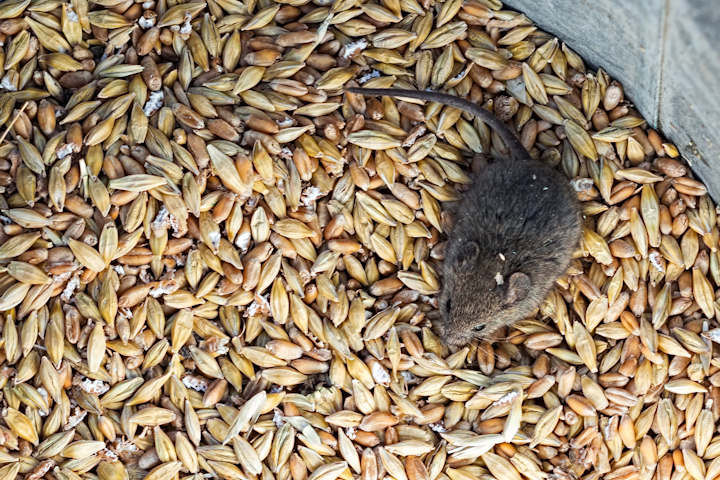Pests in London | Mice
Mice
![]() Originating from Asia the House mouse (Mus musculus domesticus) thrives in the human environment and haS spread throughout the populated world.
Originating from Asia the House mouse (Mus musculus domesticus) thrives in the human environment and haS spread throughout the populated world.
Mouse Facts
House mice are active all year round and although mainly nocturnal they can be seen regularly during the day.
About 8cm in length (excluding the tail) mice have an average weight of 12–25g. Their fur is brown/grey, with slightly lighter shading on their underside.
Mice breed rapidly, producing 7–8 litters per year of 4–16 pups and reach sexual maturity from two months of age.
Mice spread disease and are common carriers of Salmonella and Listeria. Hantavirus is also linked to mouse populations but thankfully infection rates are very low in the UK.
Mice are omnivores and will eat virtually anything not sealed in an air tight container. They will visit multiple food sites every day spoiling and contaminating foodstuffs making them a particular nuisance in properties involved in food preparation.
Mice are extremely agile jumping vertically to 24cm. They are excellent climbers and swimmers can scale vertical surfaces and can squeeze through gaps as small as 6mm wide.
Like rats, mice have front teeth that grow throughout their life so they need to gnaw constantly to keep their incisors worn down.
A single House Mouse can produce 3/4 litre of urine and nearly 30,000 droppings per annum.
House Mouse Mus musculus domesticus) Image Gallery
How to tell if you have mice
- Mice are mostly nocturnal but can be active during the day. Mice can be spotted running along the wall if they are disturbed.
- Mice produce up to 80 droppings per day. They are dark in colour measuring 3-6mm long and torpedo shaped with pointed ends.
- Mice mark their teritory and attract mates with urine which has a strong odour and this can build up over time.
- Scratching noises in wall cavities or in loft spaces are caused by mice gnawing or running.
Preventing Mice
Mice are extrememly difficult to keep out of your home as they are excellent climbers and can squeeze through gaps as small as 6mm.
Although mice will eat virtually anything they prefer grain and cereals so foods is best stored in air tight glass or metal containers, and food waste must be be disposed of as soon as possible
How to get rid of Mice
Mouse traps can help to limit the growth of a small population, but mice are not easily dissuaded when they have taken up residence.
The best method. Call the experts - we can use traps and methods not available to the home owner, with a treatment plan guaranteed to solve your rat problem.


